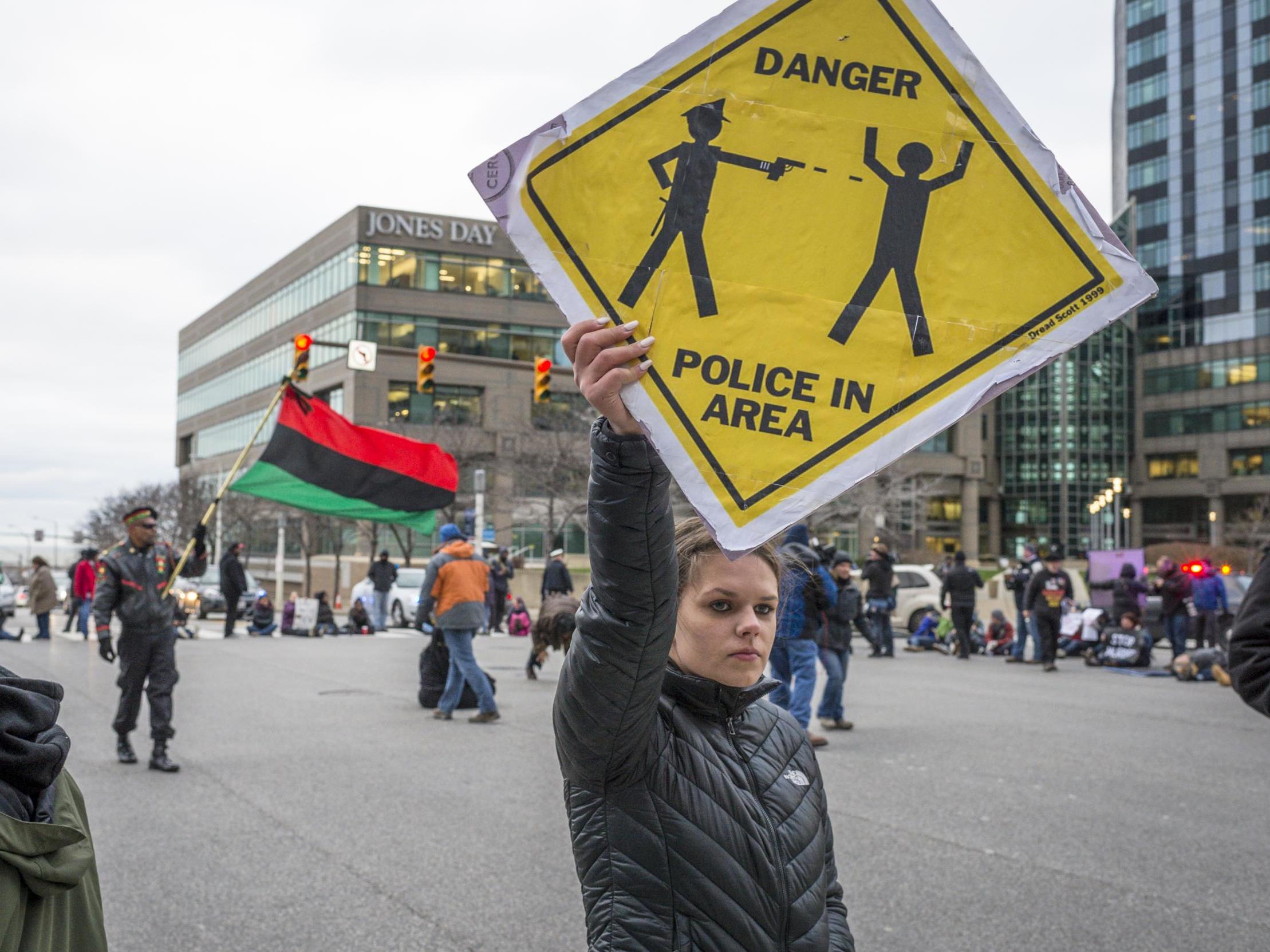Police shootings are a leading cause of death for young American men, new research shows
For this group, death by police officer is the sixth most common way to die

Your support helps us to tell the story
From reproductive rights to climate change to Big Tech, The Independent is on the ground when the story is developing. Whether it's investigating the financials of Elon Musk's pro-Trump PAC or producing our latest documentary, 'The A Word', which shines a light on the American women fighting for reproductive rights, we know how important it is to parse out the facts from the messaging.
At such a critical moment in US history, we need reporters on the ground. Your donation allows us to keep sending journalists to speak to both sides of the story.
The Independent is trusted by Americans across the entire political spectrum. And unlike many other quality news outlets, we choose not to lock Americans out of our reporting and analysis with paywalls. We believe quality journalism should be available to everyone, paid for by those who can afford it.
Your support makes all the difference.The phrase “leading causes of death” might bring to mind cancer, heart disease, suicide and drug overdose.
But new research published this month in the Proceedings of the National Academy of Sciences finds that young American men are at a surprisingly high risk of being killed by a police officer.
Among men of all races, ages 25 to 29, police killings are the sixth-leading cause of death, according to a study led by Frank Edwards of Rutgers University, with a total annual mortality risk of 1.8 deaths per 100,000 people.
Accidental death, a category that includes automotive accidents and drug overdoses, was the biggest cause at 76.6 deaths per 100,000, and followed by suicide (26.7), other homicides (22.0), heart disease (7.0), and cancer (6.3).
The data used in this study do not differentiate between police killings that were later determined to be justified and those that were not. FBI data, which is widely acknowledged to be incomplete, shows that 400 to 500 homicides each year are determined to be justified, which is defined as “the killing of a felon by a law enforcement officer in the line of duty”.
Those deaths represent about half of the roughly 1,000 annual police killings that independent tallies, including those by The Washington Post and The Guardian, have found.
For a black man, the risk of being killed by a police officer is about 2.5 times higher than that of a white man. “Our models predict that about 1 in 1,000 black men and boys will be killed by police over the life course,” the authors write.
In the 20 to 24 age group, black men represent nearly 2 per cent of such deaths, compared with 0.5 per cent for whites. A 40-year-old black man has about the same risk of being killed by a police officer as a 20-year-old white man.
Because no reliable federal data exists for police killings, the authors turned to the data compiled by Fatal Encounters, a project that uses news reports, public records requests and crowdsourced information to tally officer-involved fatalities.
The authors note that Fatal Encounters was “endorsed as a sound source of data” by the federal Bureau of Justice Statistics in a 2016 report, but they warn that the data likely undercounts the number of officer-involved killings: “If any death is not covered by news organisations or is not documented in searchable public records,” they note, “it will not appear in the data.”
The study excludes police-involved deaths determined to be a suicide, the result of a car accident or an accident, like an overdose or fall.
Police killings are far more common in the United States than in other advanced democracies. That is partly because the US has a much higher homicide rate – “25.2 times higher” – than economically similar countries, according to a 2016 study.
One of the prime drivers of that difference, research shows, is the nation’s high rate of gun ownership: Americans make up 4 per cent of the global population, but own nearly half the guns in the world.
The nation’s high rates of violence and gun ownership make many police fearful for their lives, research shows. Data compiled by the National Law Enforcement Officers Memorial Fund shows that, in recent years, 100 to 200 officers are killed annually in the line of duty. And other research shows that police are more likely to be killed in the line of duty in states with more permissive gun laws.
Officers can respond to the threat of violence by using lethal force of their own: more than half of the 544 people shot and killed by police to date in 2019 were found to be carrying firearms, according to data compiled by The Washington Post.
The authors of the PNAS report note another factor at play in the country’s high rate of police shootings: “Austerity in social welfare and public health programmes has led to police and prisons becoming catchall responses to social problems,” they wrote.
In his recent book, “The End of Policing,” sociologist Alex Vitale of Brooklyn College argues that police often end up being the de facto first responders for mental health issues because of “a decision that’s been made by political leaders not to fund adequate community-based mental health services”.
At least 20 per cent of people fatally shot by police so far this year had documented mental health issues, according to The Post’s data.
The study’s authors say their findings reinforce calls “to treat police violence as a public health issue” with “profound consequences for public health, democracy, and racial stratification”.
The Washington Post
Join our commenting forum
Join thought-provoking conversations, follow other Independent readers and see their replies
Comments